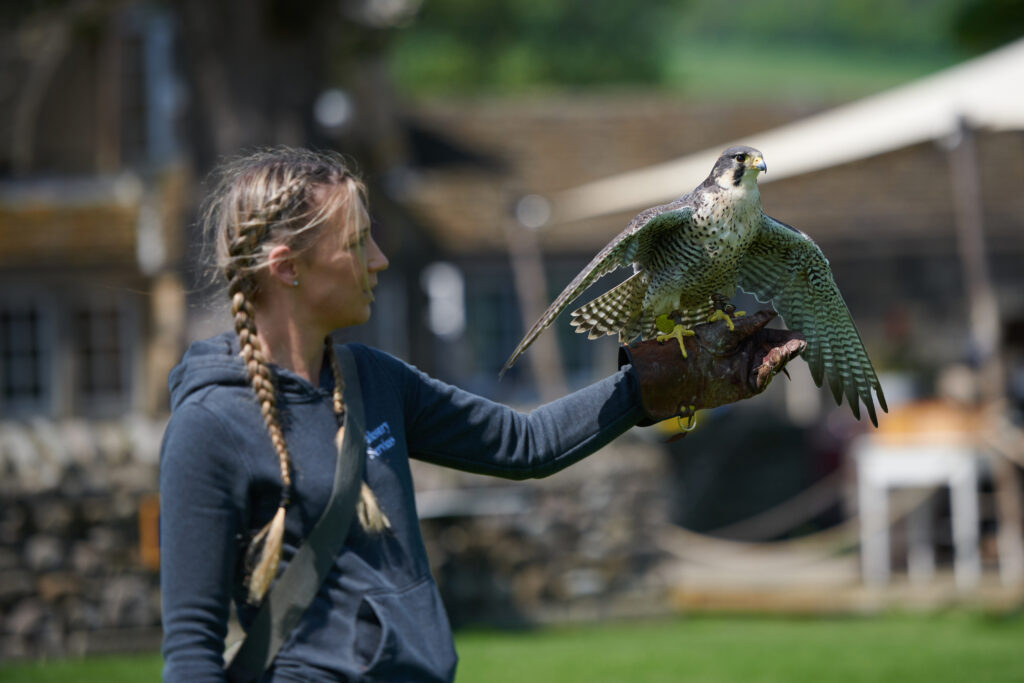Supplier feature: Falconry Services

Both our add-on falconry experience courses and our residential Raptor Award course are run by by accredited Raptor Award Assessor and renowned falconer, Jess Craven. Jess has over 15 years experience with birds of prey, including working for one of the UK’s largest eagle and vulture display teams, and has a wealth of knowledge when it comes to all things birds of prey.
Jess has a lengthy background, including working in the UK's largest eagle and vulture display team and training falcons for Sheiks in the Middle East. The falcons she uses for the add-on courses are very prestigious within the falconry world and they have both native UK falcons and Canadian and African from the best bloodlines available.
If you would like to attend one of our courses, you can find more information here.
The History of Falconry
Falconry is the sport of hunting with trained birds of prey. It is one of the oldest and most traditional forms of hunting, with a history that dates back thousands of years.
The earliest evidence of falconry comes from ancient Egypt, where paintings and sculptures dating back to 3000 BC depict falcons being used for hunting. Falconry was also practiced in ancient China, Greece, and Rome.
In the Middle Ages, falconry became popular among the nobility in Europe. It was seen as a sport of kings and princes, and many famous figures, such as Richard the Lionheart and King John, were avid falconers.
The Practice of Falconry
Falconry is a complex and demanding sport. It requires a deep understanding of birds of prey, as well as the ability to train them to hunt.
The first step in falconry is to obtain a bird of prey. Falcons, hawks, and eagles are all used in falconry, but the type of bird that is best suited for a particular falconer will depend on the type of hunting that they want to do.
Once a bird of prey has been obtained, it must be trained. This process can take several months or even years. The falconer will use a variety of methods to train the bird, including food rewards, positive reinforcement, and physical conditioning.
Once the bird is trained, it is ready to be used for hunting. The falconer will release the bird into the air, and it will then use its keen eyesight and hunting skills to locate and capture prey.
The Benefits of Falconry
Falconry has many benefits. It is a great way to get exercise, learn about birds of prey, and experience the thrill of hunting. It is also a great way to connect with nature and appreciate the beauty of the outdoors.
In addition to the personal benefits, falconry also has a number of environmental benefits. It can help to control populations of pests, such as rabbits and rodents. It can also help to educate people about birds of prey and the importance of conservation.